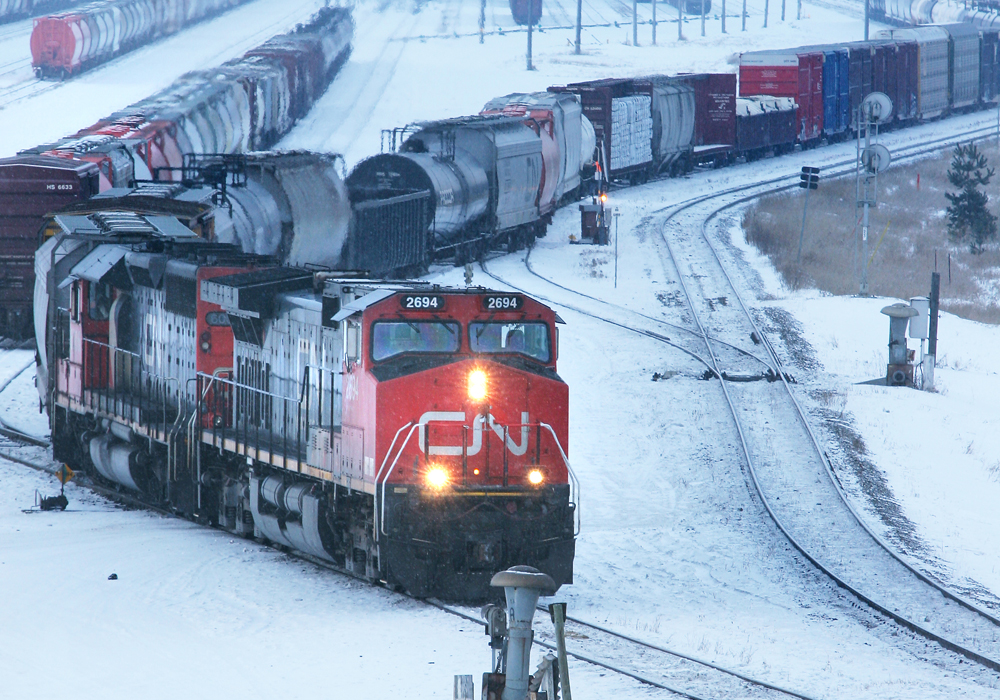Canadian National Railway says it has started its recovery plan after experiencing backlogs along its lines for several weeks.
The company said in a news release today that it is calling back most of its temporarily laid-off employees to implement a recovery plan in Eastern Canada, noting the process will take several weeks to complete.
In Western Canada, it said, CN has been well on its way to recovering service, acknowledging it has lots of work ahead.
“We are rebalancing our assets to service customer sites for loading,” CN president JJ Ruest said in a news release.
Read Also

The Organization for Economic Co-operation and Development lauds Canada’s low farm subsidies, criticizes supply management
The Organization for Economic Co-operation and Development lauded Canada’s low farm subsidies, criticized supply management in its global survey of farm support programs.
The recovery efforts follow immense delays in grain movement. The late harvest, CN strike, poor weather and protest blockades had largely put the company’s network at a standstill.
The blockades, which were established in support of Wet’suwet’en hereditary chiefs who oppose a natural gas pipeline in northern British Columbia, have largely been dismantled, allowing CN to get back to work.
The delays have hampered grain shipments and caused many elevators to fill up. There have been fewer farmer deliveries and some expect cash flow won’t be seen until the summer.
In fact, the Grain Monitor showed on March 2 that grain shipments to Canadian ports had dropped by roughly 1.3 million tonnes.
Ruest told Reuters the company lost the equivalent of 10,000 carloads or roughly one million tonnes of grain.
He said grain exports will take the longest to recover.
He said in the news release that more than 1,400 trains, including passenger trains, were cancelled or delayed because of the blockades. He thanked customers and partners for their patience and law enforcement agencies and governments for their involvement.
With the blockades and delays, farmers and agriculture business leaders have urged the federal government to take swift action, arguing it has hurt Canada’s reputation as a reliable exporter.
The Western Grain Elevator Association has said the delays have cost the industry $9 million per day.
In a news release March 4, the CN Agricultural Advisory Council said it wants federal and provincial governments, as well as industry partners, to ensure operations are reliable in the future.
“We acknowledge that CN’s recovery efforts are underway, but we emphasize that there is still a complex backlog that cannot be underestimated,” said Alanna Koch, chair of the advisory council.
“This is critical as there are customers still waiting for their product, farmers waiting to be paid and inputs like fertilizer that must be delivered in time for seeding,” she said.
The British Columbia and federal governments have reached a draft arrangement with the Wet’suwet’en hereditary chiefs. Details of the deal haven’t been disclosed because it has to be ratified by Wet’suwet’en clan members.
Many have said the federal government needs to truly address the root of the problem, which is re-setting relationships and foundations with indigenous peoples, to ensure blockades don’t form again.
Independent MP and former Liberal cabinet minister Jody Wilson-Raybould has said the government should implement comprehensive legislation that upholds and recognizes indigenous rights, allowing nations to rebuild their governments.
Contact jeremy.simes@producer.com
















